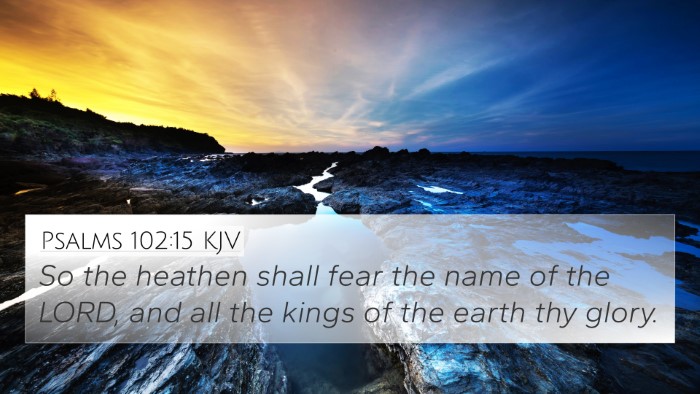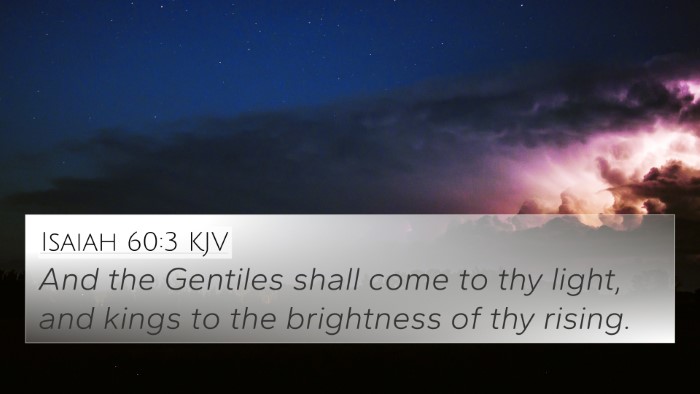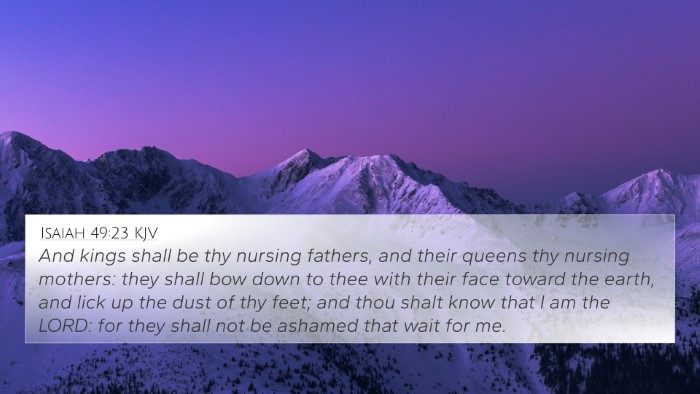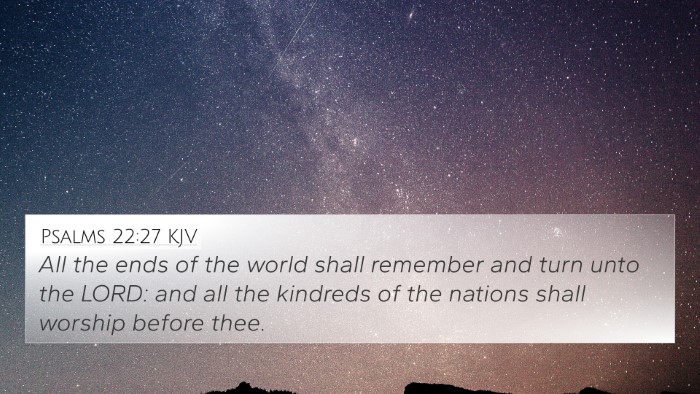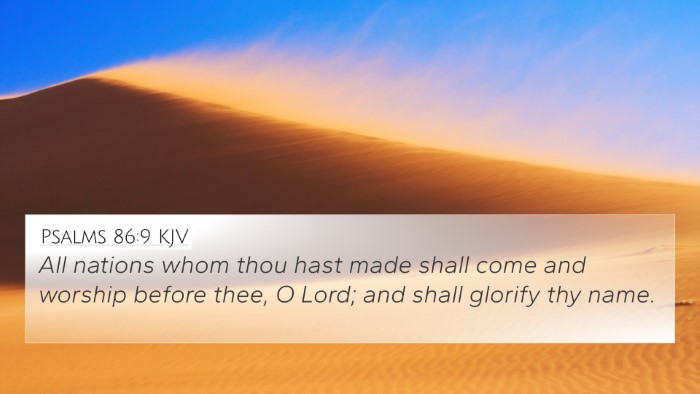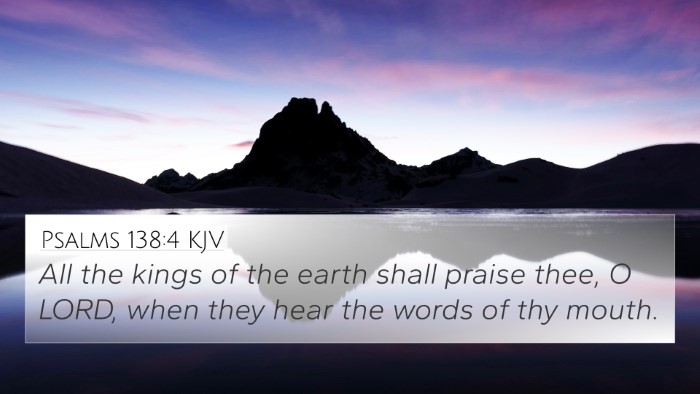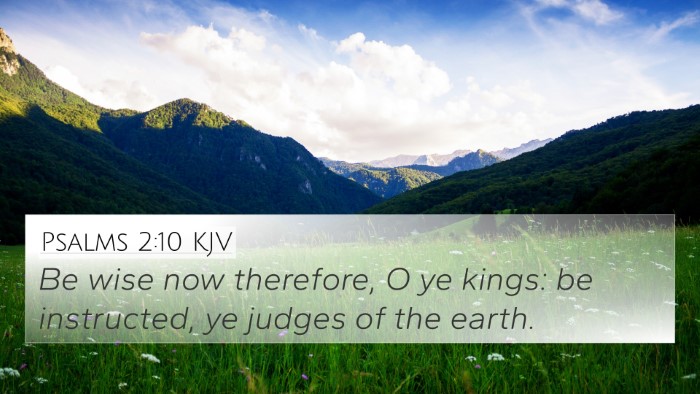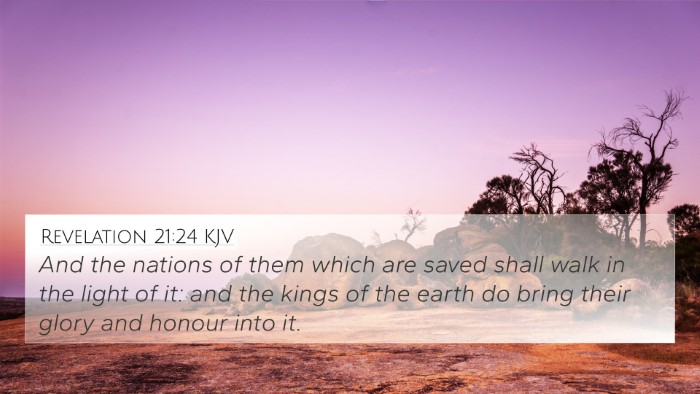Psalms 148:11 - Verse Meaning and Interpretation
Psalms 148:11 states:
"Kings of the earth, and all people; princes, and all judges of the earth."
Overview
This verse brings together a call to all levels of authority and power on the earth, encompassing rulers and judges, highlighting their role in the grand worship of God. The psalmist encourages all, from the highest ranks of society to the common people, to recognize their place in praising the Creator.
Insights from Public Domain Commentaries
Matthew Henry's Commentary
Matthew Henry suggests that Psalms 148 calls upon all aspects of creation to worship God. Specifically, in verse 11, the mention of "kings" and "judges" implies that those in positions of authority have a God-given responsibility to honor and acknowledge the sovereignty of God. Henry emphasizes the universality of praise, indicating that all should glorify God regardless of their station in life.
Albert Barnes' Notes on the Bible
Albert Barnes highlights the significance of the referenced classes—“kings,” “people,” “princes,” and “judges”—as representing human authority in various forms. He points out that just as the heavens and nature sing praises, so too should those who lead on earth. Barnes believes this is an invitation for earthly authority figures to display humility before the Creator, acknowledging their dependence on divine power.
Adam Clarke's Commentary
Adam Clarke further elaborates that the mention of "all people" includes both the exalted and common folks, thus stressing the democratic notion of God's sovereignty. Clarke interprets this as a call for collective recognition of God's majesty and might, encouraging both the elite and the layman to join together in worship. He indicates that this verse serves as a reminder that God's glory transcends all earthly status.
Key Themes and Connections
This verse exemplifies several theological themes, notably:
- Universal Worship: Acknowledges that all creation, including societal leaders, should praise God.
- Divine Sovereignty: Affirms God’s reign over all earthly authorities.
- Humility and Recognition: Calls rulers to humility before God.
Bible Verse Cross-References
The following passages are relevant to Psalms 148:11, illustrating the theme of God's universal authority and praise:
- Psalm 72:11: "Yes, all kings shall fall down before Him."
- Revelation 1:5: "Jesus Christ, the faithful witness, the firstborn from the dead, and the ruler over the kings of the earth."
- Psalm 117:1: "Praise the LORD, all you nations; extol him, all you peoples."
- Daniel 4:34-35: "His dominion is an everlasting dominion, and His kingdom is from generation to generation."
- Romans 13:1: "Let every soul be subject to the governing authorities. For there is no authority except from God."
- John 19:11: "You could have no power at all against Me unless it had been given you from above."
- Luke 19:40: "If these should keep silent, the stones would immediately cry out."
- 1 Timothy 6:15: "He who is the blessed and only Potentate, the King of kings and Lord of lords."
- Philippians 2:10: "That at the name of Jesus every knee should bow, of those in heaven, and of those on earth, and of those under the earth."
- Micah 4:3: "They shall beat their swords into plowshares, and their spears into pruning hooks; nation shall not lift up sword against nation."
Applications and Reflections
The implications of Psalms 148:11 extend beyond mere acknowledgment; it nurtures an attitude of worship and obedience within all societal structures. This serves as a poignant reminder for contemporary leaders to submit to God's authority, recognizing that true wisdom and justice can only be gleaned from Him.
Using Cross-References in Bible Study
Cross-referencing Bible texts can deepen understanding and form thematic connections crucial for comprehensive theological study. Here are tools and methods you might explore:
- Bible Concordance: A tool for locating specific verses based on keywords.
- Cross-Reference Bible Study Guides: Books or online resources that provide detailed cross-references.
- How to Use Bible Cross-References: Follow thematic studies aligning various scriptures to enrich insights.
- Bible Chain References: A systematic approach to lead from one verse to another, forming an interconnected link.
- Incorporating Inter-Biblical Dialogue: Exploring how verses in one testament reference or illuminate those in another.
Conclusion
Psalms 148:11 serves as a vital biblical communication, fostering a recognition of God’s sovereignty by both powerful and humble figures alike. The interconnectedness established through cross-references further enriches our understanding of worship and humility in the presence of God. As we reflect on this verse, may we be encouraged to acknowledge God's rightful place in our lives and societies.



